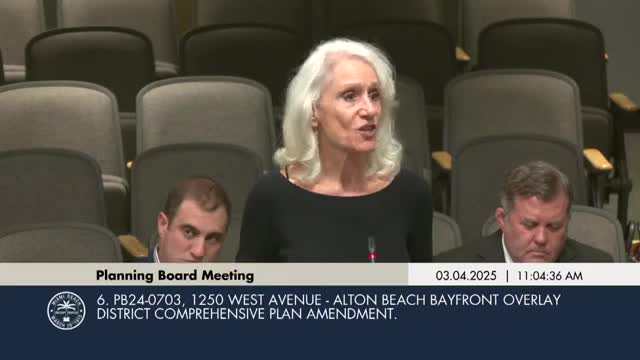Article not found
This article is no longer available. But don't worry—we've gathered other articles that discuss the same topic.
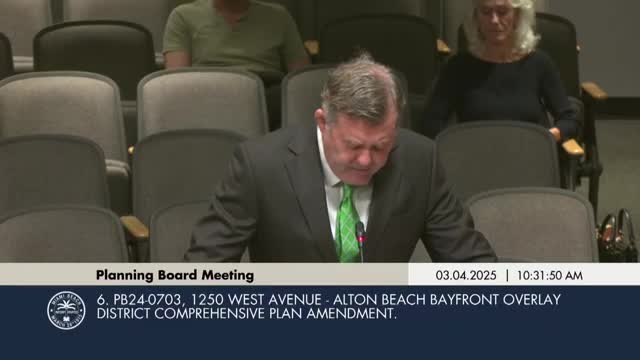
Planning board sends 1250 West Avenue overlay to commission with negative recommendation, 4-3
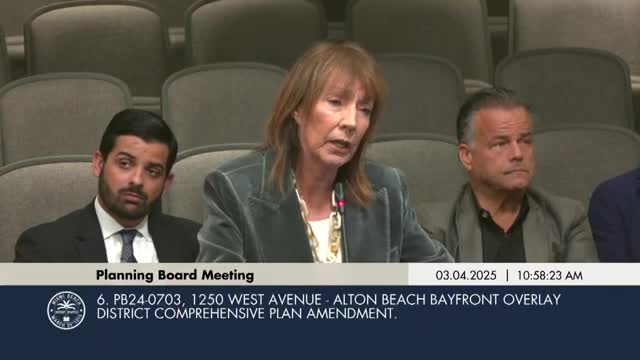
Planning board to continue review of Lincoln Road incentives for residential development; outreach and study requested
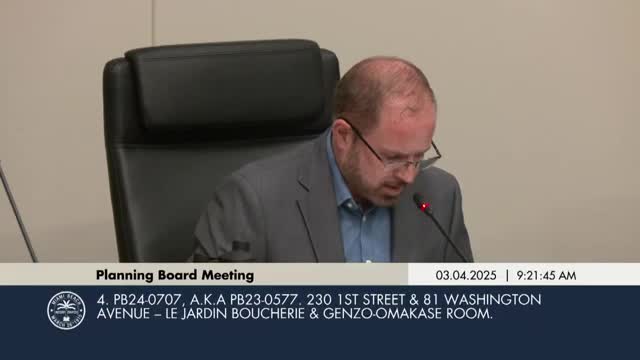
Board warns restaurant after rooftop band violation; continues progress report to June 10
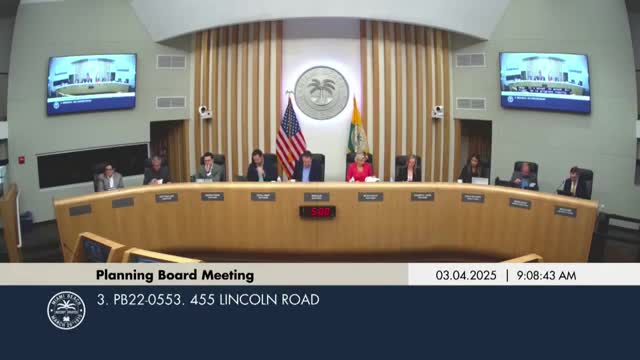
Lincoln Road restaurant with recent operational citations granted two-month continuance after owner promises staff training
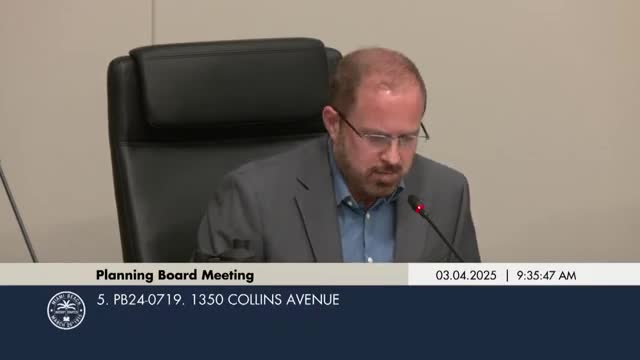
Applicant asked to limit Collins Avenue restaurant music to ambient levels; planning board continues outdoor-entertainment request to June 10
